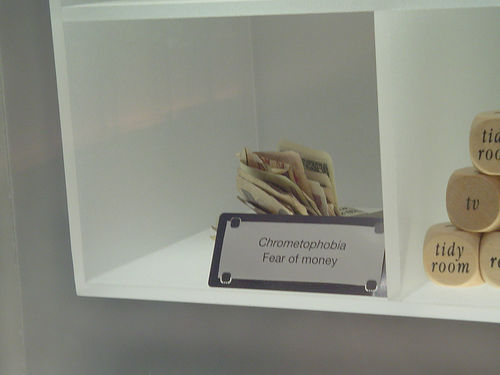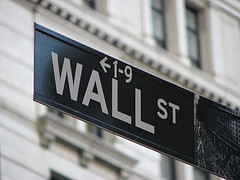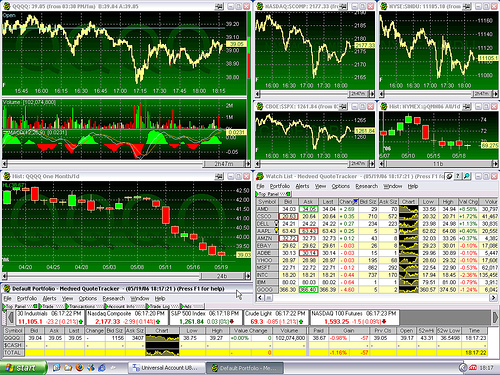Many investors fail in this world due to their fear of losing money. Brilliant people continue to fail at trading the markets because of their emotions, not their intelligence or their work ethic. It’s their psychological make-up and their pre-programmed society based beliefs as partially explained in The Holy Grail of Trading: It’s not your System.

I don’t want to confuse the concept of conserving one’s wealth by employing proper money management techniques and the actual fear of going broke. Fearful investors base their entire system, thoughts and style of investing on a negative thought process or a negative mental attitude. Successful investors, whether it is stocks, real estate or businesses, always develop strategies to protect from the down-side by focusing on the reward versus the original risk. Successful investors develop systems with expectancies that allow them to negate emotional fear by knowing what can happen if the investment fails. Successful investors are emotionally prepared to handle the side effects of losing money. Unsuccessful investors think about losing the initial investment and more often than not, pass up on a potential golden opportunity.
How many times have you heard a person say: ‘if I only put my money into that stock or that piece of real estate”? These same people are also the ones that continue to pass up on potential opportunities today because they are scared to lose. Nothing comes easy and life rarely serves up a free pass without some form of risk attached. When speaking in terms of stocks, an investor must place money after their best ideas or they will never know if they have a winning system. Many people paper trade and claim they can pick winners but I view them as fearful of losing money. The fear of money and the fear of losing are two of the main reasons why so many people go broke on Wall Street.
If you don’t fear money and can accept losing as part of the game, you will eventually become successful.
A scared poker player can serve as a perfect example of the type of person that fears to lose money. Take the time to sit at any $1-$2 no-limit hold’em game at a casino and you will quickly realize who fears money and who plays without fear. Good players may continually lose because they fear the dollar and fail to play according to their strategy. I have seen several bad players win lots of money at the tables because they bully the scared players out of their hands. They essentially make suckers out of the better player so in the end; the better player goes home broke and emotionally damaged.
For example: let’s say you are dealt a KK and raise on the first bet but one of these fearless “garbage bully players” re-raises all-in to scare you out of the pot.
Would you fold?
I have heard many stories of players folding high quality hands due to their fear of getting a bad beat. In this case, the bully can only represent one hand that can beat yours, so the odds are heavily in your favor so you must call and call quickly (don’t have fear when the odds say you should win). Two remedies exist for the fear of a bad loss: a bankroll that can withstand a few bad beats and a strategy that capitalizes on hands with high odds for potential winners. Over the long term, you will be a consistent winner but must understand that beats will happen and some of them will be large (if it is a bad beat). Assuming that you let go or cut poor hands short, these larger losses can be avoided consistently. In poker and in life: scared money is dead money!

The same principal holds true in investing and in life. The people that assume the risk and calculate the odds of success are typically the ones that come out ahead with larger bank accounts. They don’t focus on the losing aspect of a deal and never blurt out the words “what-if”. To repeat, they don’t ignore possible failures as they prepare for the worst and expect the best. I will not deny that I have been in situations where I was scared to lose but that helped me seek out the answers to consistent winning. Losing will always sting but I now accept losing as part of the game.
I expect to win each trade but ultimately understand that some will fail and it’s ok as long as I don’t let it become catastrophic. I have learned to accept losing trades, losing money and I have challenged the fear of money. I place risk under control by developing and using a positive expectancy system, position sizing and money management techniques that eliminate my fear of losing money. I may lose many small battles but I depend on my system to win the ultimate war. I am a trend-trader so my wins are large in a market similar to what we have just experienced.
Read this quote from the movie Rounders:
“In “Confessions of a Winning Poker Player,” Jack King said, “Few players recall big pots they have won, strange as it seems, but every player can remember with remarkable accuracy the outstanding tough beats of his career.” It seems true to me, cause walking in here, I can hardly remember how I built my bankroll, but I can’t stop thinking about the way I lost it.”
That quote can be tied to investing with great accuracy.
One more quote that fits with the article I have written about the fear of losing money:
“They’re trying to goad me, trying to own me. But this isn’t a gunfight. It’s not about pride or ego. It’s only about money. I can leave now, even with Grama and KGB… and halfway to paying Petrovsky back. That’s the safe play. I told Worm you can’t lose what you don’t put in the middle. But you can’t win much either.”
What are you afraid of?






Connect with Me